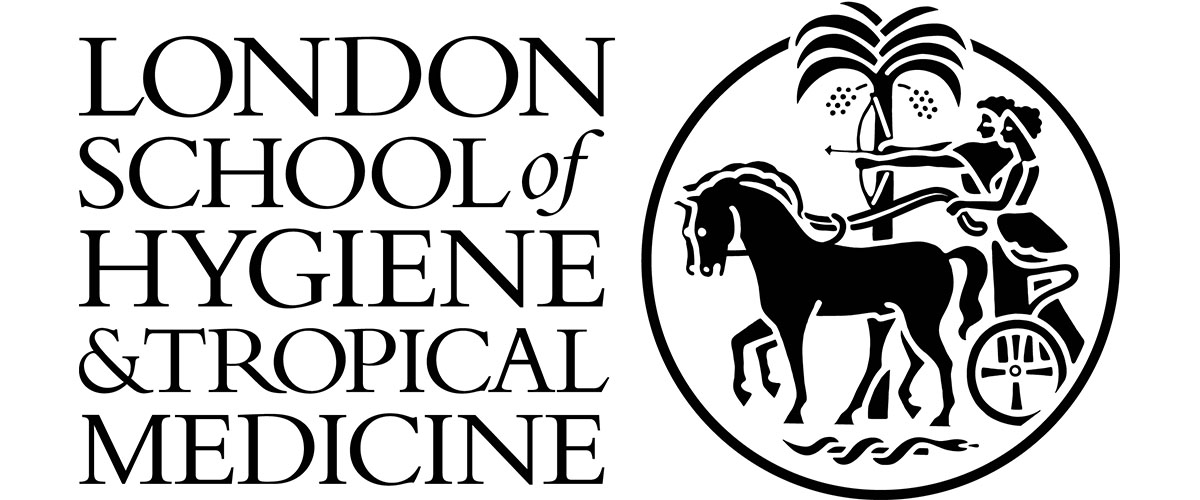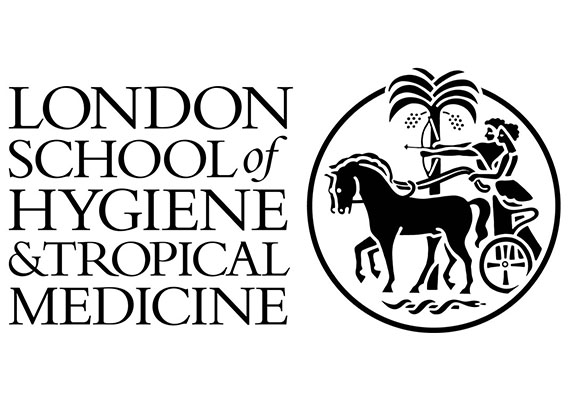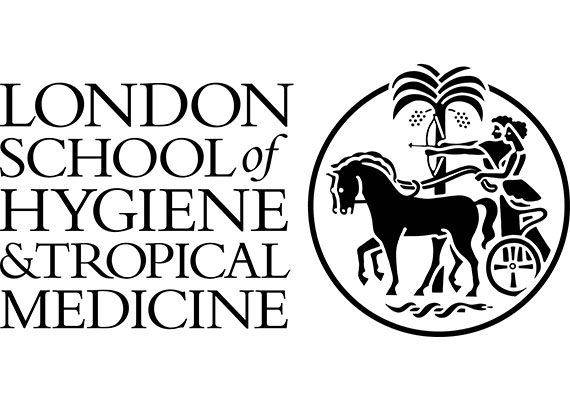Call for Expressions of Interest for Research Partners to undertake collaborative evaluation research in Benin, Cameroon, or Côte d’Ivoire as part of the Unitaid-funded IPTi+ Project, in partnership with the London School of Hygiene and Tropical Medicine.

Issuance Date: 13 December 2021
Deadline for Questions: 23.59 GMT on Friday 17 December 2021
Closing Date/Time: 23.59 GMT on Wednesday 19 January 2022
Attachments: Annex A: Scope of Work
SUBJECT: Call for Expressions of Interest for Research Partners to undertake collaborative evaluation research in Benin, Cameroon, or Côte d’Ivoire as part of the Unitaid-funded IPTi+ Project, in partnership with the London School of Hygiene and Tropical Medicine.
London School of Hygiene and Tropical Medicine (LSHTM) is renowned for its research, postgraduate studies, and continuing education in public and global health. Our mission is to improve health and health equity in the UK and worldwide; working in partnership to achieve excellence in public and global health research, education and translation of knowledge into policy and practice.
Unitaid has awarded a grant to Population Services International (PSI, prime recipient) in collaboration with LSHTM (evaluation lead) to collaborate with national malaria control programmes (NMCPs), expanded programmes on immunisation (EPIs), research partners, and other stakeholders to support the implementation, evaluation, and scale-up of intermittent preventive treatment of malaria in children under 2 years of age with sulfadoxine-pyrimethamine (SP-IPTi+). SP-IPTi+ will involve the administration of a full therapeutic course of SP delivered through EPI and other contact points within the health system (either facility- or community-based) to children under 2 years at risk of malaria, regardless of their malaria infection status. IPTi+ presents an innovative modification of IPTi, which is already recommended by the World Health Organization (WHO), increasing the number of doses and expanding the intervention to the second year of life.
Over the 4-year project period, the new approach will be developed, implemented and evaluated in partnership with four “focus” countries – Benin, Cameroon, Côte d’Ivoire, and Mozambique. In each focus country, the IPTi+ Project will conduct a multidisciplinary package of evaluation research alongside pilot implementation of SP-IPTi+. The SP-IPTi+ evidence base will be built through a combination of process evaluation, impact evaluation, economic evaluation and modelling, SP resistance genotyping and mapping, and policy research. Evidence from the four focus countries will be supplemented by policy research, SP resistance mapping, and economic evaluation in three additional countries (Zambia, Ghana and the Democratic Republic of the Congo) to widen the evidence base to inform policy development, adoption, and scale-up of SP-IPTi+ across appropriate areas throughout Sub-Saharan Arica.
Details of the planned evaluations are outlined in Annex A.
We hereby invite research organizations based in Benin, Cameroon, or Côte d’Ivoire to submit an Expression of Interest (EOI) to partner with the IPTi+ Project through a subcontract with LSHTM to conduct all OR some of the evaluation components in either Benin, Cameroon, or Côte d’Ivoire (please see Annex A). LSHTM anticipates signing a subcontract with one or more successful partner(s) in each of these three countries, subject to alignment with IPTi+ Project priorities, due diligence, and agreement on terms. Consortium offers are also welcomed. The specifics of the evaluation design in each country may differ, and will be determined in part by the design of the pilot intervention models, which will be finalised by January 2022.
Depending on the number and type of research components involved, the total budget available for research partner(s) in each of the three countries could range from $335,000 to $1,770,000 per country. The expectation is that research budgets towards the higher end of this range would be awarded to research partners undertaking the full package of evaluation components (please see Annex A). Smaller budgets would be expected for research partners only undertaking one or two evaluation components. Following this EOI, shortlisted organisations and consultants will be issued a request for proposals (RFP) and invited to submit full proposals including detailed budgets.
EXPRESSION OF INTEREST INSTRUCTIONS AND REVIEW PROCESS
- Questions concerning this request should be submitted via email to iptiplus@lshtm.ac.uk by 23:59 GMT on Friday December 17, 2021.
In compliance with standard procedure, all inquiries and comments will be shared with the rest of the Offerors along with the Project’s response. Questions received after the closing date for Questions may not be answered.
- Expressions of interest must be submitted in two steps, both of which must be completed by 23:59 GMT on Wednesday 19 January 2022:
- Complete online expression of interest form (available at https://lshtm.onlinesurveys.ac.uk/iptiplus-eoi-for-research-partners)
- Email iptiplus@lshtm.ac.uk with your personalised receipt number (which you will receive upon completion of the above form) in the subject line and CVs of key team members attached.
Please note that LSHTM will not accept responsibility for delays with transmission or receipt of application. Applications received after that date and/or time specified may not be considered.
Issuance of this Request for EOI does not constitute an award commitment on the part of LSHTM nor does it commit LSHTM to pay for costs incurred in the preparation and submission of an application. Further, LSHTM reserves the right to reject any or all applications received.
Sincerely,
Professor Roland Gosling
Professor of Global Health
Technical Lead of IPTi+ Project
London School of Hygiene & Tropical Medicine
ANNEX A:
Scope of Work for a London School of Hygiene and Tropical Medicine subcontract to a research partner based in either Benin, Cameroon, or Côte d’Ivoire to conduct one or more evaluation components for the Unitaid IPTi+ Project in one of the three named countries
NB: Selected research partners must be based in in the country in which they will conduct evaluation activities.
Subcontract Period: 1 March, 2022 – 31 December, 2024 (to be confirmed)
Background
Intermittent preventive treatment of malaria in infants with SP (SP-IPTi) is an intervention recommended by the World Health Organization (WHO) since 2010 in areas with moderate to high malaria transmission in sub-Saharan Africa where SP is still effective.
Studies show that SP-IPTi can significantly reduce clinical malaria and anaemia in the first year of life, as well as hospital admissions associated with malaria infection or for any cause. WHO currently recommends giving SP three times during the first year of life at approximately 10 weeks, 14 weeks and 9 months of age, corresponding to the routine vaccination schedule of the Expanded Programme on Immunization (EPI).
However, since 2010, access to, demand for, and uptake of SP-IPTi has been limited among National Malaria Control Programs (NMCPs), healthcare providers, and caregivers. Barriers to uptake have included concerns around drug efficacy and parasite resistance; perceptions that the intervention offers limited impact and low value for money; challenges and additional workload of delivery through EPI; and lack of national ownership of SP forecasting, budgeting, and supply chain management.
Project Summary
The IPTi+ Project will co-design, pilot, and evaluate proof-of-concept models of SP-IPTI+, an innovative modification to SP-IPTi, in four focus countries – Cameroon, Benin, Cote d’Ivoire and Mozambique. SP-IPTI+ will offer additional doses of SP beyond the currently recommended three contacts by extending reach through additional facility-based and community-based contacts to infants up to two years of age. Underpinning the SP-IPTi+ pilots will be robust training, monitoring, supervision, and social and behaviour change and community engagement activities.
The IPTi+ Project will conduct a package of evaluations to generate evidence aimed at accelerating the adoption and scale-up of SP-IPTi+ in the focus countries and other malaria-endemic countries of sub-Saharan Africa. A customized evaluation approach will be used with each focus country to ensure the necessary data is obtained for process evaluations, impact evaluations, economic evaluations and SP suitability studies. The IPTi+ Project will collect limited data in three additional countries (DRC, Ghana, Zambia) interested in adoption and scale-up of SP-IPTi+.
IPTi+ Project Information
Funder: Unitaid
Prime: PSI
Sub-partner: LSHTM
Length: 4 years
Timeline: 1st August 2021 – 31st July 2025
Focus countries: Benin, Cameroon, Côte d’Ivoire, Mozambique
Plus three countries: DRC, Ghana, Zambia
Project Goal: Reduction in morbidity and mortality due to malaria and anaemia in children under two years of age in countries adopting SP-IPTi+
Project Outcome: Increased equitable access to high-quality SP-IPTi+ among target age group.
Project Outputs:
Output 1: Co-design and pilot test SP-IPTi+ platforms adapted to focus countries.
*Output 2: Demonstration of the impact, operational feasibility, efficacy, effectiveness and cost-effectiveness of SP-IPTi+.
*Output 3: Evidence dissemination and guidance to support transition, wide adoption and scale up.
Output 4: Ensure country-level supply of quality-assured SP for SP-IPTi+.
*This Scope of Work addresses outputs 2 and 3 only.
Expectations of LSHTM
- Provide technical oversight and support across all evaluation components and countries included in the evaluation of the IPTi+ Project.
- Manage communication and coordination of evaluation activities across the IPTi+ Project.
- Coordinate the writing of protocol and data collection tools, in consultation with selected research partner(s) based in the countries implementing SP-IPTi+.
- Prepare and submit required documentation to all relevant Ethics Committees in consultation with the selected partner.
- Oversee adherence to all relevant ethical review procedures.
- Support training on data collection methods and analysis to in-country teams.
- Prepare data analysis plans in consultation with the selected partner.
- Analyse and publish study results in collaboration with the selected partner.
- Receive and process blood samples for parasite detection and genotyping/sequencing within the SP-IPTi+ analysis pipeline.
Expectations of PSI
- Successfully co-design and implement IPTi+ in partnership with Ministry of Health (NMCP and EPI) and other stakeholders
Timeline for evaluation activities to be covered by Scope of Work
1 March 2022 – 31 December 2024 (to be confirmed)
Expectations of Selected Research Partner(s)
- Process Evaluation
Introduction: The process evaluation will address three main research questions: 1) What proportion of children <2 years of age receive the target number of doses of SP-IPTi+, 2) What is the effectiveness of different delivery models of SP-IPTi+ (including equity of access, acceptability, feasibility)? 3) What is the impact of the systems through which SP-IPTi+ is delivered and on the interventions with which it is co-delivered?
Expectations of the selected partner:
- Conduct quantitative household and health facility surveys using electronic data capture methods (preferably using REDCap or ODK)
- Recruit and manage a field team for surveys
- Conduct qualitative interviews with SP-IPTi+ providers and households
- Recruit and manage transcribers and translators from local language/French to English
- Code and analyse qualitative data
- Contribute to protocols, data collection tools, analyses and publications
- Take responsibility for local ethics approval submission and processes
- Take responsibility for quality of data collection, transcription, data management, and security
- Impact Evaluation
Introduction: There are two components of the impact evaluations: 1) Assessment of impact of SP-IPTi+ on incidence of clinical malaria and anaemia cases; 2) Assessment of SP-IPTi+ impact on malaria and anaemia prevalence;
Expectations of the selected partner:
- Conduct quantitative household and health facility surveys using electronic data capture methods (preferably using REDCap or ODK)
- Collect and manage biological samples (blood tests for malaria and anaemia testing)
- Train and supervise staff in the methods of quantitative data collection and biological sampling;
- Contribute to protocol, data collection tools, analysis and papers
- Take responsibility for local ethics approval submission and processes
- Take responsibility for quality of data collection, data management, and security
- Economic evaluation
Introduction: The economic evaluation will entail estimating the incremental costs, budget impact, cost-effectiveness and equity of different SP-IPTi+ delivery models. The results will be contrasted with alternative malaria interventions for children <2 years.
Expectations of the selected partner:
- Recruit and manage a field team for cost data collection
- Collect cost data on different SP-IPTi+ delivery models (e.g. facility-based or community-based contacts) from PSI/MoH implementers, from health facilities, and from household surveys
- Conduct health facility costing studies at different levels of health facility (outpatient & inpatient)
- Communicate with senior government agencies (e.g. Ministry of Health, Ministry of Finance) to access relevant cost information
- Contribute to protocol, data collection tools, analysis and papers
- Take responsibility for local ethics approval submission and processes
- Take responsibility for quality of data collection, data management, and security
- SP suitability assessment (parasite genotyping and mapping studies)
Introduction: Although SP resistance mutations are found in malaria parasites throughout Africa, there are different mutations, and different combinations of mutations in circulation which result in a spectrum of parasite drug sensitivity levels ranging from full susceptibility, through partial resistance, to complete resistance. To understand where IPTi+ with SP is likely to be effective, genotyping will be used to determine the level of drug resistance in the parasite populations in first-level administrative divisions in each of the focus countries.
Expectations of the selected partner:
- Design, with LSHTM, a sampling plan to enable estimation of the prevalence of pfdhfr and pfdhps genotypes in areas considered potentially suitable for implementation of SP-IPTi+
- Provide, or collect, blood samples stored as dried spots on filter paper
- Link, through anonymised barcodes, each sample to a location and date
- Contribute to protocol, data collection tools, analysis and papers
- Take responsibility for local ethics approval submission and processes
- Take responsibility for quality of data collection, data management, and security
- SP Parasite Clearance and Prevention of Infection Studies (PCPI) – Cameroon ONLY
Introduction: The benefits of SP administration for IPTi+ come from two separate actions: (1) clearance of existing blood-stage parasites at the time of dosing, and (2) prevention of future blood-stage malaria by drug action against liver stages of Plasmodium falciparum present of the time of dosing.
Both actions will be affected by the number and type of parasite mutations in the pfdhfr and pfdhps genes of the parasite. Ten common mutations are recognized, and these are present in different combinations in West and East Africa. Using a simple PCPI study protocol – which relies on PCR rather than microscopy for parasite detection – we will assess the impact of these different combinations on the likely effectiveness of SP-IPTi+ in four study sites, including two in Cameroon. Study sites were selected because of good representation of the range of different resistance genotype profiles of importance, based on previous data.
Expectations of the selected partner:
- Implement the study to Good Clinical Practice (GCP) standards
- Recruit and manage a field team for blood sample and data collection
- Recruit a cohort of asymptomatic children aged between 2 and 10 years for SP treatment and weekly follow up for 9 weeks
- Capture all febrile episodes in cohort participants, and administer a diagnostic test
- Collect blood samples on filter paper at each contact, and appropriately log and store samples for later processing
- Contribute to protocol, data collection tools, analysis and papers
- Take responsibility for local ethics approval submission and processes
- Take responsibility for quality of data collection, data management, and security
- Take responsibility for timely and complete patient follow-up, including clinical management if needed










